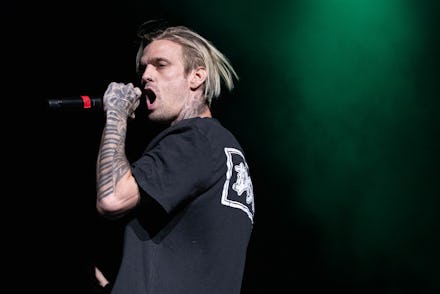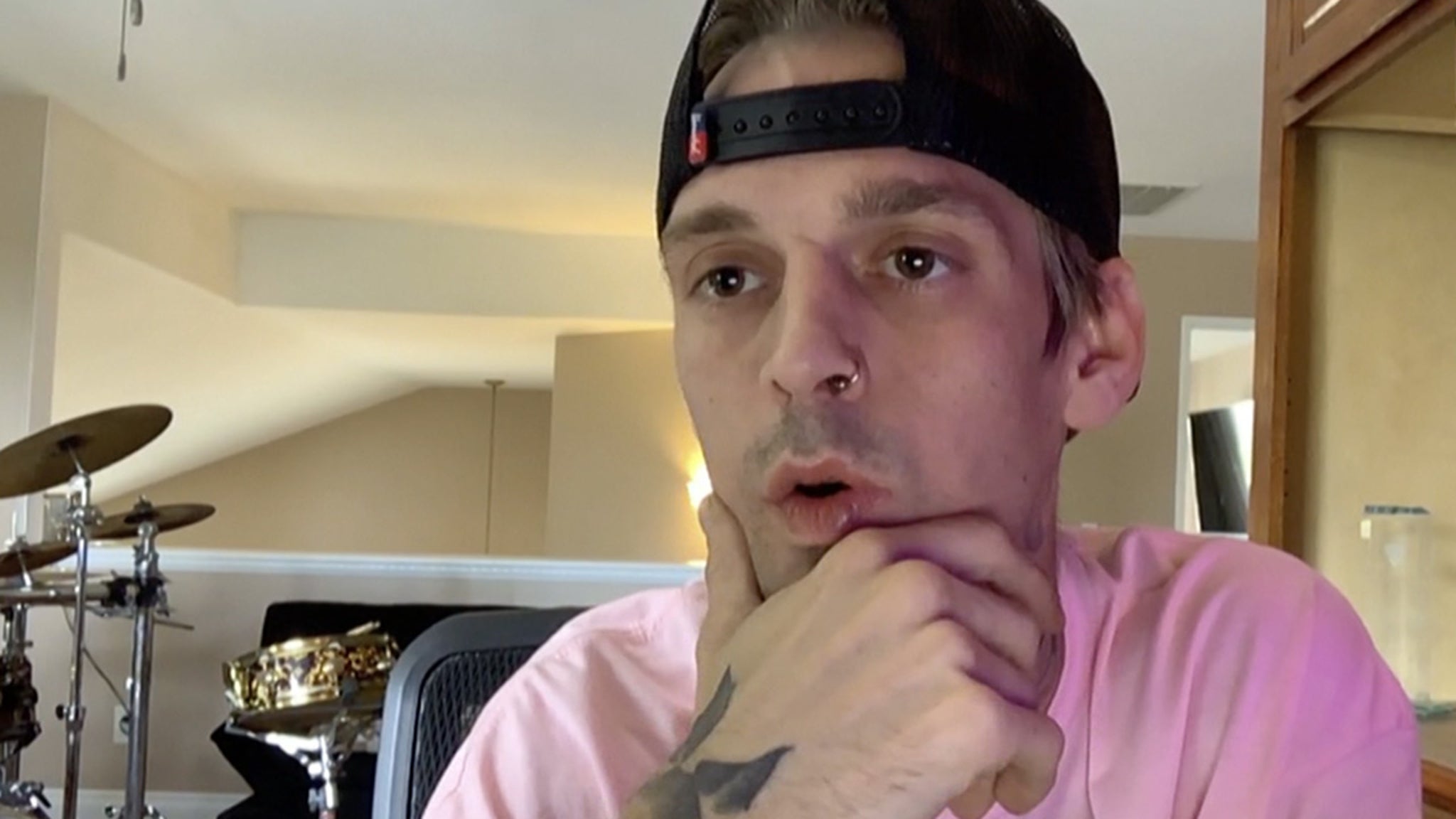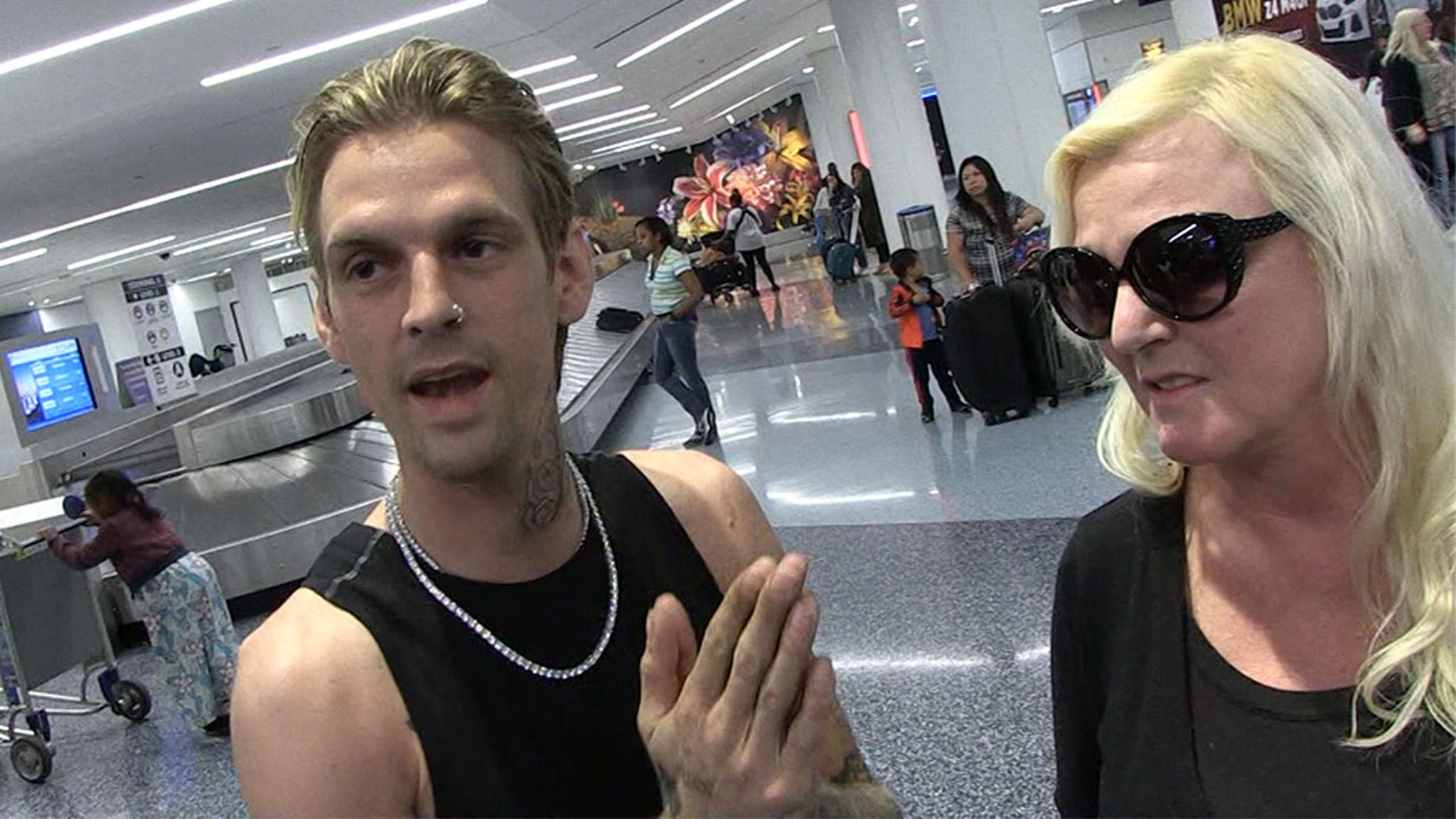Aaron Carter's run in with police shows the troubling logic of gun advocates

Despite claiming to have loaded firearms in his home and divulging his apparent mental instability, California police evidently decided Aaron Carter does not pose a threat to himself or others.
In an interview with TMZ on Monday, Carter said authorities came to his home on Sunday night with the intent of taking him in on a 5150 hold — a welfare statute dictating a person can be involuntarily institutionalized for up to 72 hours for psychiatric evaluation. “There was four deputies that came, deputy sheriff Reneé, and then a mental evaluator with a clipboard ready to take me and put me in a straightjacket last night,” Carter told Harvey Levin, founder of TMZ. “I said, ‘What’s up guys? Good to see you again.’”
Carter told TMZ he spoke with the officers for 15 minutes before they decided not to bring him in. “The reason why they weren’t able to take me is because they’ve already gone through all of my medical records. They’ve gone through everything … all of my psychiatrists. Everybody.”
“Do you think you should maybe give somebody else your firearms while you deal with your medical issues right now?” Levin asked the singer. “Just because if things go off center, bad things can happen.”
“Things aren’t gonna go off-center,” Carter retorted quickly. “There’s no bad things that are gonna happen.”

Carter got his gun license in California in late August and immediately purchased a 9mm handgun and two assault rifles, TMZ reported. Then on September 3, the singer visited Rick's Pawn Shop in Lancaster, CA, where he bought another handgun, a rifle, and 300 rounds of hollow tip bullets. That brings Carter’s stash to five guns, plus a “massive cache of weapons” passed down through his family. “My father was a military policeman for 21 years and I’m inheriting over 500 curio relic firearms from 3 generations on my father's side,” Carter wrote in an Instagram caption.
Carter has publicly struggled in the decades since he rose to fame in 2000 at 12 years old, singing about beating Shaquille O'Neal at basketball. In 2013, he filed for bankruptcy to shed $3.5 million in debt — mostly unpaid back taxes from the height of his career, like the $1.3 million Carter owed the IRS from his income in 2003, when he was 16 years old.
In September 2017, Carter’s background check was flagged at a Florida gun shop when he tried to buy a firearm. The store manager told TMZ the singer seemed “unhinged.” “He was jumpy, bragging about himself and hitting on girls at the shop,” they said. Earlier that summer, Georgia police had arrested Carter under suspicion of driving under the influence and marijuana possession. Friends and family members called 911 repeatedly in August and early September, fearing the singer was a danger to himself and others.
Carter checked himself into rehab that fall, after an appearance on medical talk show The Doctors. “I’m concerned about my overall health because people tell me I look like I have AIDs or I look like I have cancer or I look like I’m dying,” Carter told the show's hosts. At 29, he weighed just 115 pounds with a BMI of 17 (18.5 to 25 is normal).
The TV doctors put Carter through a battery of medical tests. The singer tested negative for HIV and other STDs, and he didn’t have cancer. But a drug panel showed Carter was ingesting a dangerous combination of substances. "THC aka marijuana was positive," Dr. Stork said. "Benzodiazepines, Xanax for instance... was positive. It was also positive for opiates, hydrocodone. What scares me about that drug panel is that your sister [Leslie Carter] perished from a drug overdose. You have a mixture of benzodiazepines with opiates, which is how many people accidentally can die. These medications — and I'm speaking now purely from the doctor's perspective — can be very, very scary."
Carter was back on The Doctors this week, exactly two years later, where he opened up about the struggle to get sober and his mental health diagnoses. "The official diagnosis is that I suffer from multiple personality disorder, schizophrenia, acute anxiety; I’m manic depressive," he said, adding that he’s on a regimen of 16 different psychiatric medications. "I’m prescribed Xanax, Seroquel, gabapentin, hydroxyzine, trazodone, omeprazole." While it’s great to hear that Carter is receiving treatment, it’s still troubling that he insists on keeping deadly weapons around as he fine tunes his medication and treatment regimen.

In August 2019, Carter and his mother told TMZ the singer needed assault rifles to “protect himself from crazy fans,” a notion passed down from his father, an avid gun rights advocate. “He protected our family one time, when we were on a boat and we were gonna get robbed by people when we were staying on an island,” Carter said. “He saved our lives, on an island.”
Listening to Carter give interviews, it’s clear he’s still working through anxiety and paranoia. (He recently cancelled tour dates to focus on his health.) The singer’s fear of “crazy fans” belies a life lived in harsh limelight. But his words also illuminate a terrifying mindset held by many American gun owners who aren’t suffering from psychiatric issues: that the world is out to hurt them, and the only way to protect what’s theirs is by arming themselves no matter the risk.